U.S. Coaches of the Year Announced
Published on February 9th, 2017
Portsmouth, RI (February 9, 2017) – After receiving nominations from the public in the final months of 2016, US Sailing’s Olympic Sailing Committee (OSC) today announced three winners of national coaching awards.
Mike Ingham (Rochester, N.Y.) has been named US Sailing’s 2016 National Coach of the Year, with Willie McBride (Santa Barbara, Calif.) as 2016 Development Coach of the Year and Peter Becker (Rye, N.Y.) as 2016 Volunteer Coach of the Year.
Each year, the OSC honors coaches who have distinguished themselves at the youth, national and international levels of sailing. The awards are a part of the United States Olympic Committee’s (USOC) Coach Recognition Program, which highlights the accomplishments and contributions of U.S. coaches who train athletes at all levels of Olympic and Paralympic sports.
“US Sailing is proud to recognize these three coaches not only for the notable results they have achieved in the past year, but also for the positive example they provide to others in the sport,” said Bruce Burton, President of US Sailing. “Good coaching is a cornerstone of the overall health of sailing in the United States and around the world.”
US Sailing National Coach of the Year: Mike Ingham (Rochester, N.Y.)
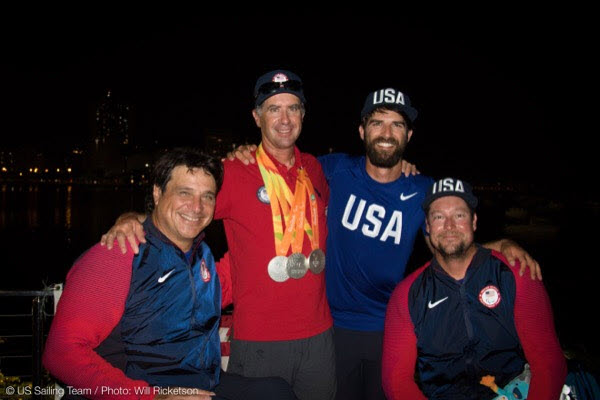
2016 US Sailing National Coach of the Year Mike Ingham (Rochester, N.Y. second from left) with Rio 2016 Paralympic medalists Rick Doerr (Clifton, N.J.), Brad Kendell (Tampa, Fla.) and Hugh Freund (South Freeport, Maine).
Mike Ingham has found success at multiple levels of sailing during a career that has included time as a high-level competitor, coach and sailmaker. The winner of over 20 continental and U.S. national one-design titles, Ingham made his name in the Olympic and grass-roots areas of the sport in classes such as the J/24, Thistle, JY15 and Tornado.
Despite his diverse list of experiences in sailing, Ingham has stated that his most rewarding task to date came as the US Sailing’s Team’s Paralympic Sonar coach for the two-year period leading up to the Rio 2016 Games. Years of careful preparation, extensive overseas travel and general hard work resulted in a Para Sailing World Championship title and the silver medal at the Rio 2016 Paralympic Games for American Sonar athletes Rick Doerr (Clifton, N.J.), Brad Kendell (Tampa, Fla.) and Hugh Freund (South Freeport, Maine.).
“Compared even to winning the Worlds, being in the hunt [for the podium] at the Games was one of the most intense experiences of my life,” said Ingham. “With six months to go, we knew we were good enough to win at the world level. The key moment, really, was when we were on the verge of winning Sailing World Cup Hyères (France) in the spring, in what would have been our first major victory as a team. A rough last day knocked us down the podium, and that was a tough. We hadn’t been in that position before, and we didn’t know how to manage the big yellow [overall leader] “dot” on our sail, the gold jerseys, all the press, and the other distractions. After that we really focused on doing things correctly on and off the water, instead of on the results.”
Doerr, Kendell, Freund and Ingham regrouped and focused on their mental game after departing from France in April, and the result was an unbroken string of success for the remainder of 2016. Winning a world title in Medemblik, The Netherlands in May was a clear indication that their evolved approach was working, but the bright lights of Rio 2016 represented an altogether different challenge.
“The Paralympic Games are on a global stage, and are unlike any other sailing event I’ve been a part of,” said Ingham, who conducted multiple Olympic campaigns of his own in the Tornado multihull. “When we won the Worlds this past year, the sailing community was happy for us, but when we medaled at the Games, even people we didn’t know were affected by it. A Games medal means things like coming home and dropping pucks at NHL hockey games and flipping coins at NFL football games. Winning at other levels of this sport is about personal and team goals. Winning at the Games is about your community and your country, and they’re all paying attention. Hoisting the flag after clinching that medal was an awe-inspiring moment for Rick, Brad and Hugh.”
In terms of his coaching philosophy, Ingham noted that he tries to be consistent in his approach, regardless of the sailors involved, and that his process is comprised of four key points. “You have to truly listen to your team,” said Ingham. “This is about reading body language, and is not just about verbal communication. You need to know when they’re saturated with info, or hungry for more. You need to know when to shut up, and when to intervene. To do that, you need to pay really close attention, and not just blurt out what to do next in a way that’s out of context.”
“The second key is to forgive, and to not expect perfection from yourself or them. Nobody is going to sail the perfect race, or series, or campaign, and you all have to move on at times or everyone will get frustrated. Third, you need to be organized. Great coaches need to be the most on-point member of the team, have their act together the most, and never get in the way of an athletes’ progress because of their own shortcomings. It’s about their development, not yours. I try to make their day as efficient as possible. Finally, it’s a massive help if you truly enjoy the journey, and the friendship, of the team. It’s really hard to do something that long, and that intensely, without enjoying the process. If you love it, you’ll get stuff done.”
Ingham joins a distinguished list of winners of the US Sailing National Coach of the Year Award, which includes David Ullman (Newport Beach, Calif.), Morgan Reeser (Ft. Lauderdale, Fla.), Greg Wilkinson (Rockport, Mass.), Mark Ivey (Tiburon, Calif.), Michael Callahan (Washington, D.C.), Betsy Alison (Newport, R.I.), Bill Ward (Newport Beach, Calif.), Zachary Leonard (Branford, CT), Rollin “Skip” Whyte (Wickford, R.I.), Roger “Scott” Ikle (Geneva, N.Y.), Serge Jorgensen (Sarasota, Fla.), Jay Glaser (Long Beach, Calif.), and Luther Carpenter (New Orleans, La.).
US Sailing Development Coach of the Year: Willie McBride (Santa Barbara, Calif.)
Willie McBride (26) is one of the youngest sailing professionals to reach the top level of coaching, which has proven to be an asset when it comes to working with the top youth talent in the U.S. McBride’s racing background is rooted in technical, high-performance dinghies including the I420, 29er, 470 and 49er, but at an early age he decided to shift his focus from campaigning in Olympic classes to pursuing coaching as a career.
In 2016, McBride was selected as Team USA’s 49erFX coach for the Rio 2016 Olympic Games, and helped Paris Henken (Coronado, Calif.) and Helena Scutt (Kirkland, Wash.) defy the odds and qualify for the medal race, a career-best performance, despite being the youngest team in the fleet. Henken and Scutt also memorably won a race in the high-performance skiff class on Day 8 that was broadcast globally from Rio.
In late 2016, McBride was named to the staff of the U.S. Youth World Championship team, and helped American sailors bring home an impressive three medals from Auckland, New Zealand at the world’s premier junior regatta. McBride was also heavily engaged in coaching for US Sailing’s Olympic Development Program ODP) in 2016 as the ODP mobilized to prepare the Youth Worlds Team for the big event.
“It’s been an awesome, crazy year, going from Miami, to Europe, to Brazil and finishing things off in New Zealand,” said McBride. “It’s been amazing to be a part of all of these teams, and be surrounded by unbelievable athletes and support staff, in addition to some of the best coaches in the world. I can’t tell you how much of an honor it was to be on the US Sailing Team staff with people like Dave Ullman, Luther Carpenter, Jonathan and Charlie McKee, and others. The list is long, and I was fortunate.”
McBride said he was drawn to coaching early from a desire to help others succeed. “To me, coaching is such a rewarding job since you get to work with so many driven kids and athletes,” said McBride. “Sailing is a very complete challenge. It requires many components and skills sets. At the development level, it’s just as much about teaching kids about how to learn, and how to absorb information, as it is about instilling sailing concepts. Even with the Olympians I worked with, Paris and Helena, who were doing their first campaign, the focus was always on figuring out how to learn faster and better than our competitors. This has been the underlying theme in all of my coaching projects this year.”
McBride has also been noted for his innovative usage of technology to help his sailors quickly master new concepts. “The habits that our sailors have developed on the water or in their classrooms at school are often different than what they need in order to succeed,” said McBride. “There’s a lot of technology available, and it can be distracting at times. If you do it right, you can convey a lot of information really quickly, and turn complex points into simple takeaways. That’s always the challenge with new technology; finding the right balance between what is simply new, and what is truly helping the learning process.”
Previous winners of US Sailing’s Developmental Coach of the Year Award include Steve Keen (Stamford, Ct.), Todd Fedyszyn (St. Petersburg, Fla.), Jay Kehoe (Annapolis, Md.) Ryan Minth (New York, N.Y.), Brett Davis (Naples, Fla.), Ben Glass (Seattle, Wash.), Duffy Markham (Wellesley, Mass.), Tom Coleman (Hixson, Tenn.), Rob Hallawell (Marblehead, Mass./Coronado, Calif.), Brian Doyle (Darien, Conn./Hanover, N.H.), Amy Gross-Kehoe (Bayville, N.Y.), Adam Werblow (St. Mary’s, Md.) and Mike Zani (Bristol, R.I.).
US Sailing Volunteer Coach of the Year: Peter Becker (Rye, N.Y.)
After helping to start and manage the Young American Junior Big Boat Sailing Team in Rye, New York, Peter Becker saw years of effort and training come together when his predominantly junior crew on the modernized Trip 41 High Noon found unprecedented success in the 2016 Newport Bermuda Race. High Noon was the second boat in the 133-strong fleet to arrive in Bermuda after the record-breaking, 100-foot super maxi Comanche. The team was also third overall in the St. David’s Lighthouse Division, and took home the race’s first Stephens Brothers Youth Division Trophy.
“It was a huge honor to be a part of that team, and really exciting throughout,” said Becker. “All in all, the kids came home with a wheelbarrow full of trophies and had a really memorable experience.”
Becker and other adult sailors at American Yacht Club (Rye, N.Y.) started the junior big boat program as part of a larger effort to build lifelong sailors. “On a big boat, success and safety are a bit about leadership, but a lot about teamwork,” said Becker, who was part of a ten-person team on High Noon, seven of which were juniors. “Young people learning how to operate effectively as a team will take away many lessons about how to succeed in a corporate environment, or just in life in general. There’s a lot of conversation these days about how we create sailors for life, and I’m a big believer that sailing on big boats can do that. You can race, cruise, go across oceans or just day-sail on big boats.”
High Noon was refitted with a new keel and other systems by 2015 US Sailing Rolex Yachtsman of the Year Steve Benjamin (Norwalk, Conn.), who donated the boat to the the U.S. Merchant Marine Academy for the purpose of giving the Young American Junior Big Boat Sailing Team and other students access to a competitive offshore racing machine. After chartering the boat from the USMMA for the summer racing season, Becker and his team won the 2016 Onion Patch Series in addition to their impressive showing in Bermuda.
“I wanted to get the juniors a bunch of sea time, and give them confidence,” said Becker. “I also wanted to make the program resemble a sort of graduate school program for offshore sailing. I think giving back is important. None of us [adult sailors] would be where we are if we didn’t have people ahead of us who passed down this knowledge. None of these things happen singlehandedly. Our program has been supported by a lot of others like me. I do a bunch of the work, but it takes a lot of hands on a lot of oars to get to the end of it. It’s a rewarding equation, and an all-consuming one. My wife asked at one point last summer when I was going to stop, so I she could see me more.”
Source: US Sailing




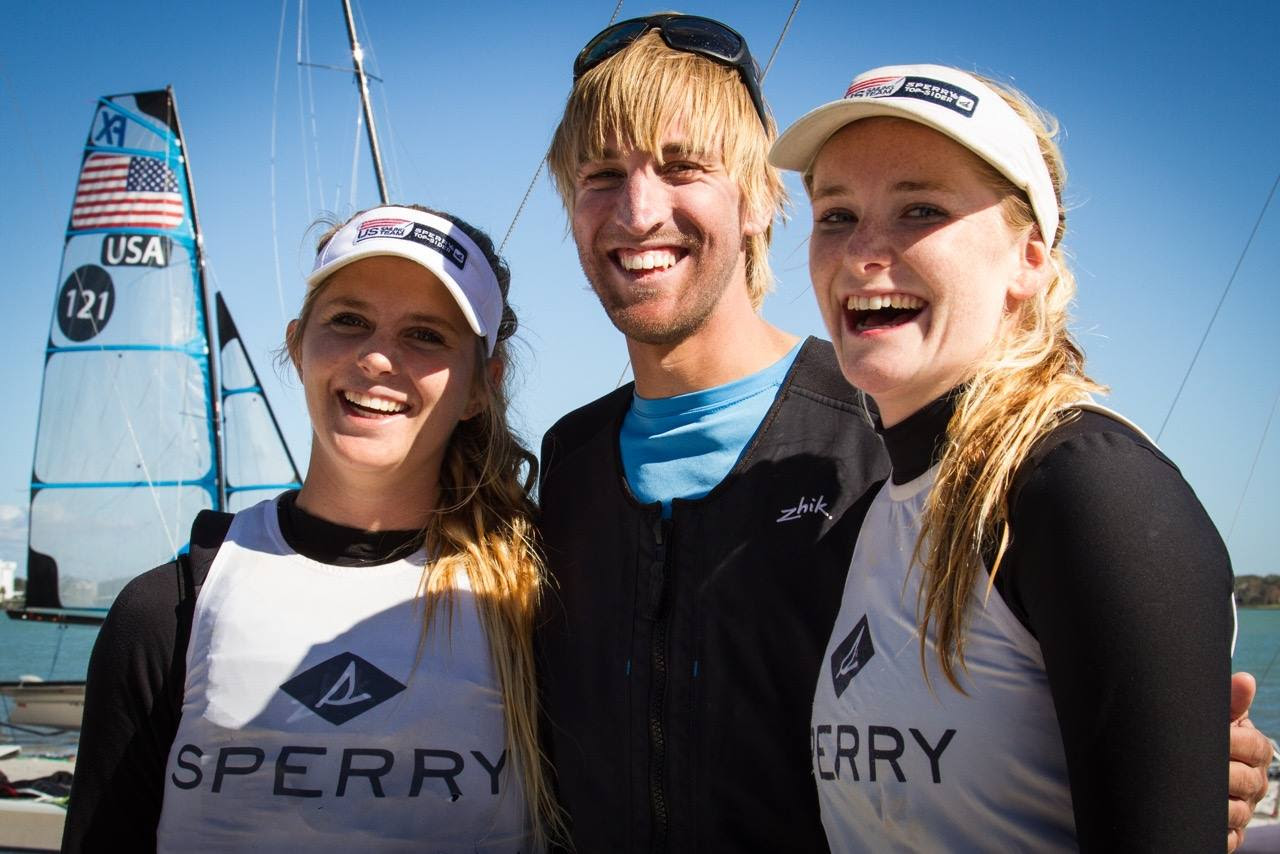
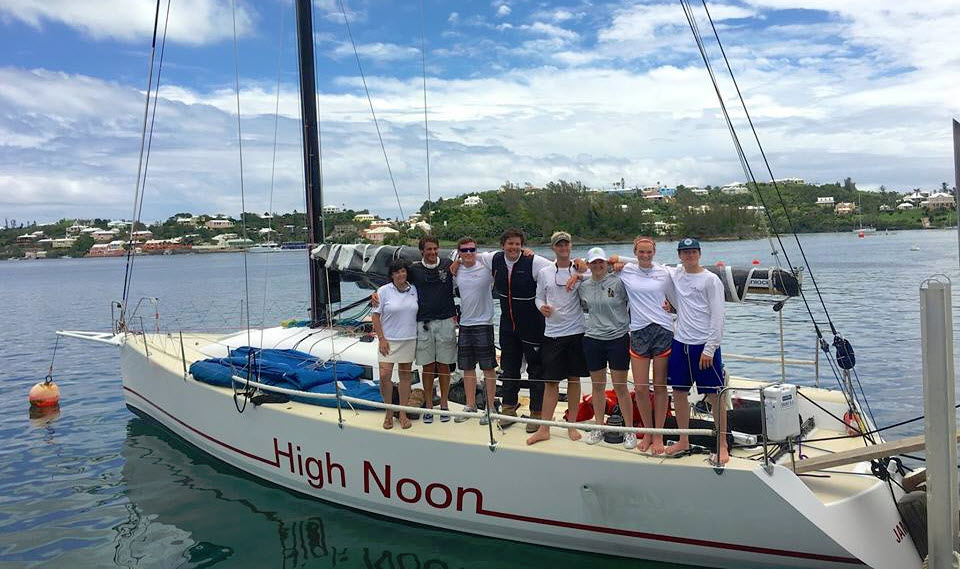



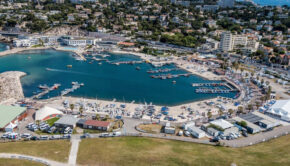
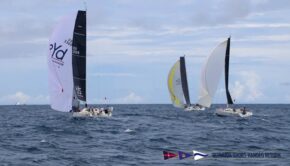
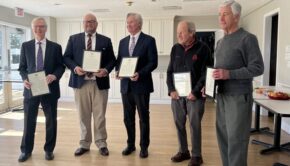
 We’ll keep your information safe.
We’ll keep your information safe.